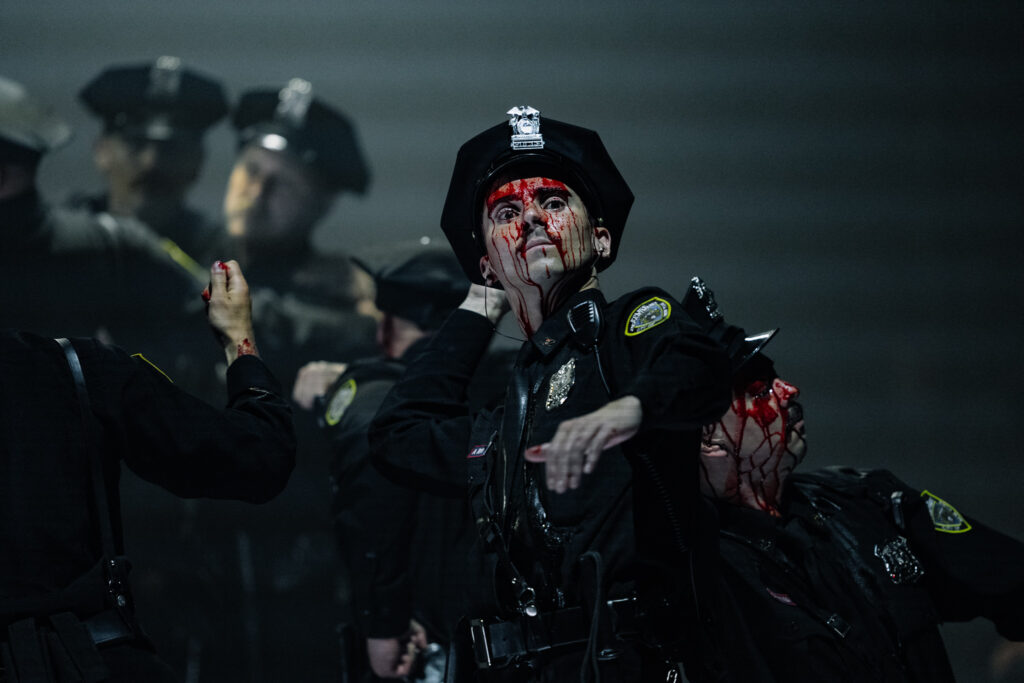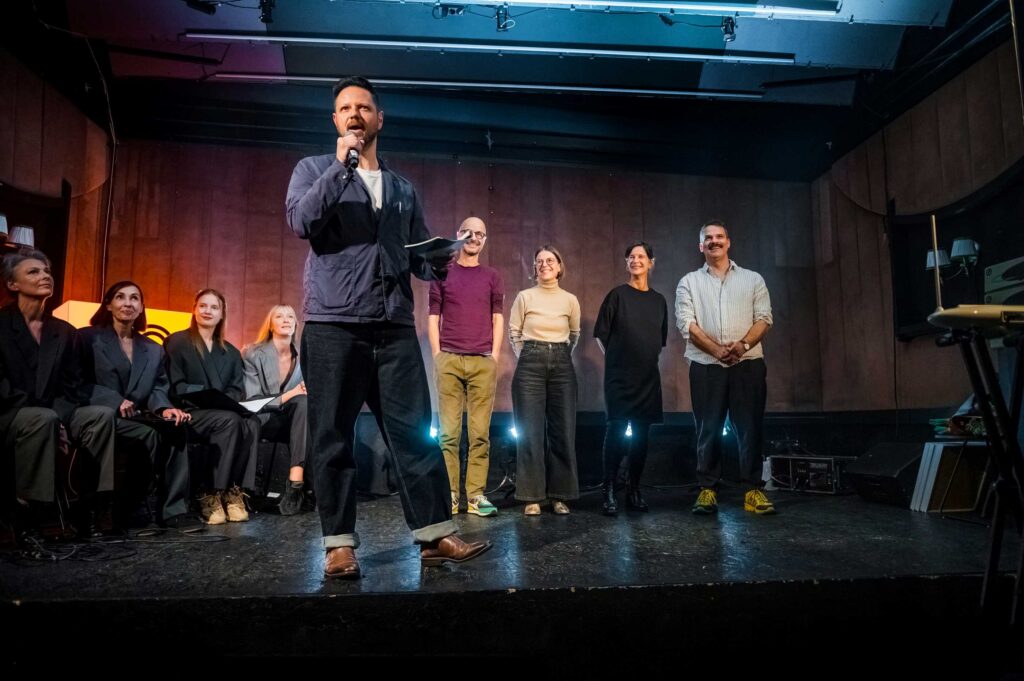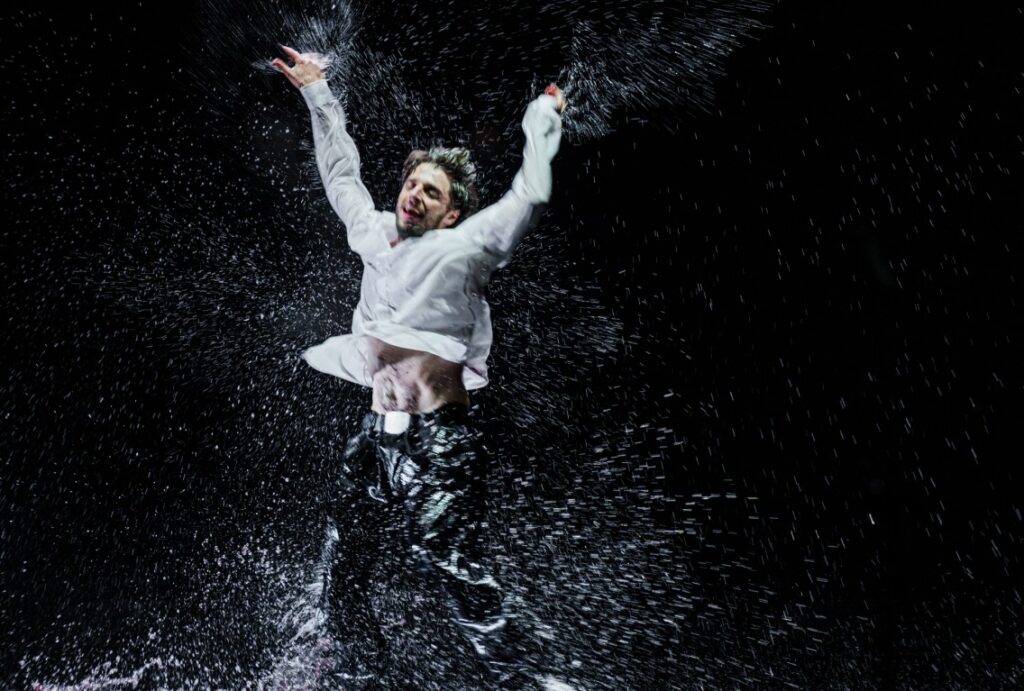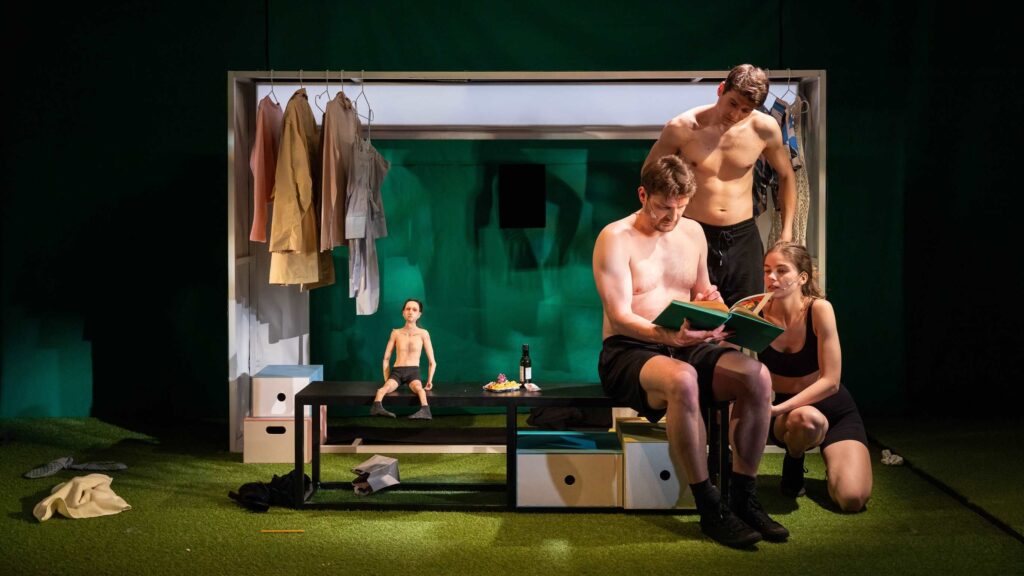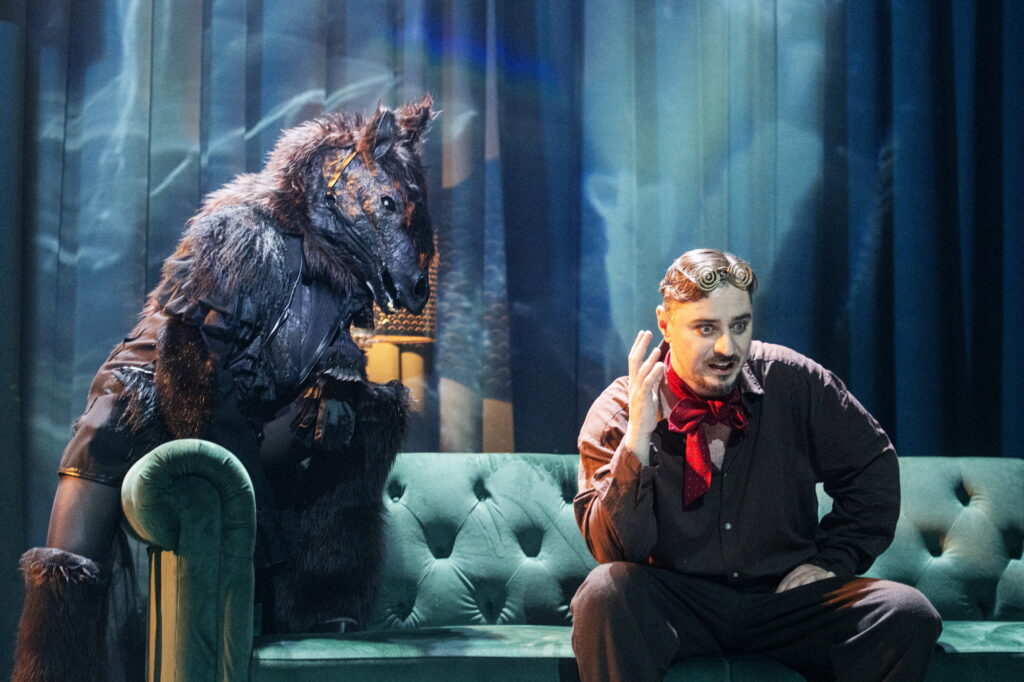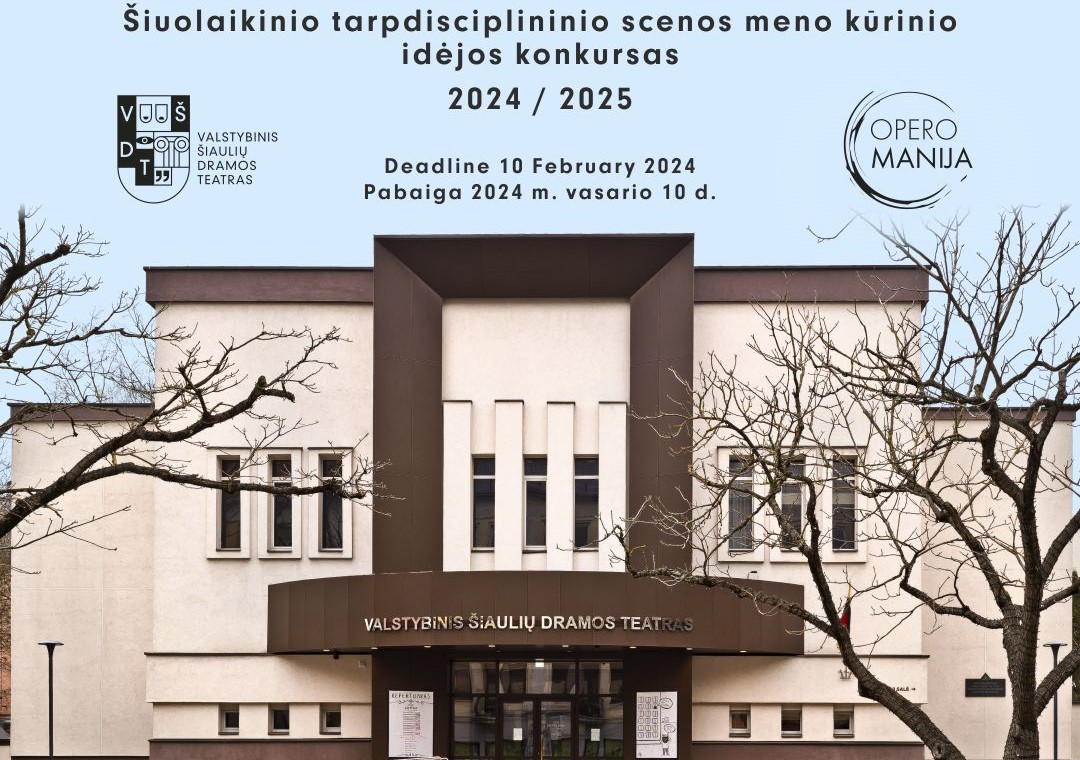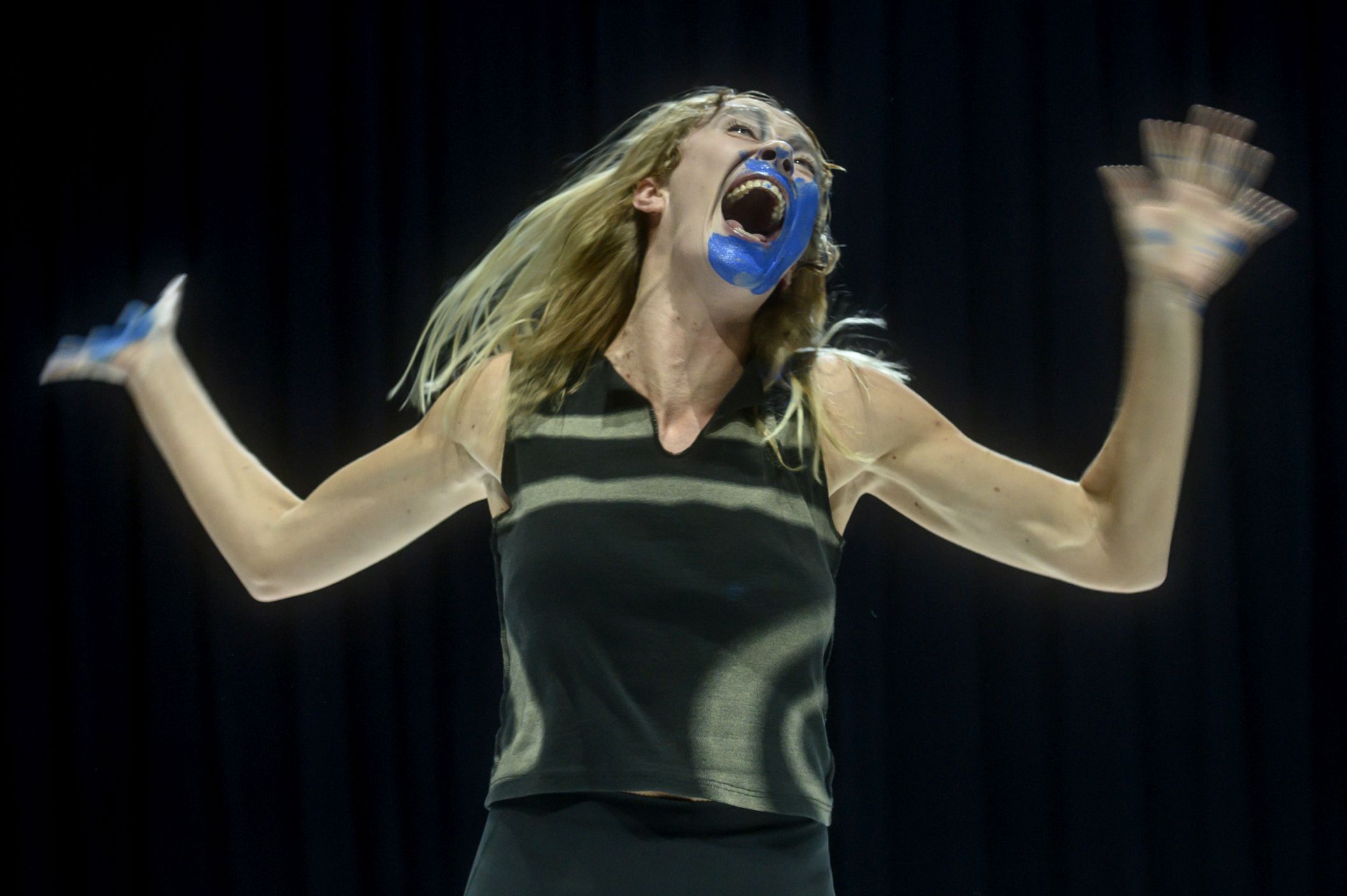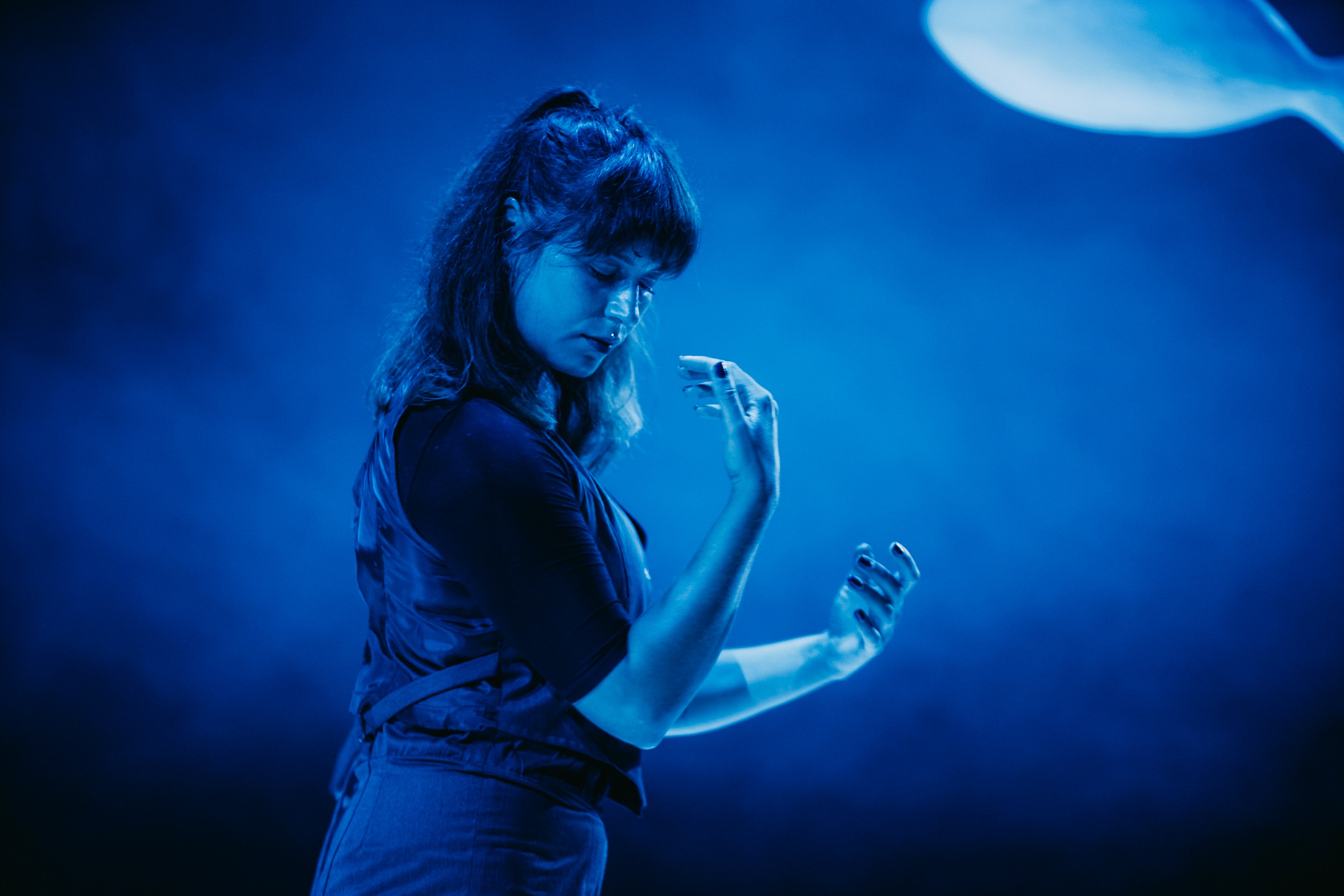This was one of those seasons when I have not been in the theatre as much as I would have liked. I do not know whether it is a personal attitude or a general trend, but even if there were some remarkable and important performances this season, they did not turn into events. At least that is what I can judge from the published critical reviews, the reactions of my colleagues, and my testimonials.
At the centre of this theatre season is Klaipėda. Not only with abundant Golden Stage Cross nominations and awards but also with the performances to prove it. I did not see one of them – the performance “West Pier” by young generation creator Adomas Juška. The director, set designer Lauryna Liepaitė, and lighting designer Julius Kuršis were awarded the Golden Crosses for this production, and a large part of the team was also mentioned among the nominees. I am adding it to the list in the hope that I will see it along with the premieres of the new season.
Festival “TheATRIUM” hosted an adaptation of Romeo Castellucci's “Bros” and showed it twice. This performance was presented at the end of the theatrical season, and it might be the one best summarizing the prevalent theatrical / directorial trend of the whole year to address the intangibility of drama, rather than the drama itself. The adaptation process of the play travelling through various countries involves almost two dozen non-professional actors and only a few stage professionals who become characters of, or rather, characters in the play. These are the people who have a technical knowledge of the play’s structure, but are unable to empathise with their roles during the (deliberately) short rehearsal process that lasts only one day. And, in a way, they are preventing the audience to empathise either.
This theatrical season opened and closed with this theme of non-identification encoded in Castellucci’s performance. In the autumn, the “Consider the Lobster” by Yana Ross premiered in the capital city, which is significant not only as a kind of director’s return to Lithuanian theatre after long and intensive theatre trips abroad, but also as an experiment. Taking David Foster Wallaceʼs journalistic essay as the basis for the performance, Yana Ross speaks about empathy without letting either the actors or the audience feel it. The actor who is telling Wallaceʼs story on stage, reaches the audience precisely through this lack of empathy, or involvement. It is a distance that does not turn into indifference, but rather evokes hostility. But after all, that is the aim of this performance - to irritate the consumer comfortably seated in their chair. It is an important performance not only in the directorial biography of Yana Ross, but also for the new artistic directors of the Lithuanian National Drama Theatre (LNDT) in shaping the values and direction of the theatre. This production stimulates thought, not the senses.
The highlight of the season should have been, and partly was, the opera “Things I Didn’t Dare to Say, and It’s Too Late Now” by Kamilė Gudmonaitė and Dominykas Digimas (LNDT, 2023). On the one hand, it is a production that opened the biggest stage of the capital’s drama theatre after a long break (albeit temporarily), so the opening was an event by itself. Did the performance become an event? I have a twofold opinion on this: it is a great idea - a conception that, in my eyes, could have benefited from a clearer directorial direction. Focusing on documentary recordings, which are the strength of this production, rather than on stage action, would have allowed us to get closer to the story than through the opera genre. This contrast, with the stage action so distant from the viewer and the documentary recordings so intimately close, makes the performance difficult to understand. It might be related to the traditional theatre space, or the chosen genre, but Kamilė Gudmonaitė’s performance “Glaciers” comes to mind, where an autobiographical video conversation easily connects with the chorus singing the dramatic text and the stage action.
Symbolically, in the autumn, the State Youth Theatre also hosted the last performances of “The Marriage” by Eimuntas Nekrošius (Warsaw National Theatre, 2018). One can feel that the Youth Theatre regards the theatre spectator as an observer interested in theatre processes and its history, which is evidenced by the production brochures that, at times, could be described as publications, accompanying not only premieres, but also, for example, the tour of “The Marriage”. Moreover, this is also evidenced by the artistic direction of the theatre, which continues through the seasons. However, to what extent the artistic quality fulfils the expectations of the audience or critics is another and perhaps open question.
The autumn also brought the Swiss director Milo Rau to Lithuania with his performance “La Reprise. Histoire(s) du Théâtre (I)”, film screenings and a live meeting with this creator of political and documentary theatre. The director, who is following the facts to later disrupt and create them, also constructs the narrative of the performance itself in a new way, pulling it out of the local and placing it in a common human context. Milo Rau’s theatrical language is cold and precise, it does not allow you to trust because it is distrustful itself, making one question and doubt. On the one hand, this performance can be regarded as an investigation, but what seems to be really important for Milo Rau is the form he applies to any / all content. This was confirmed during the meeting with director himself and by the manifesto of the NT Gent theatre he leads, which clearly emphasises the circumstances and form of the performance / production: “<...> At least a quarter of the rehearsal time must take place outside a theatre. A theatre space is any space in which a play has been rehearsed or performed. At least two different languages must be spoken on stage in each production. At least two of the actors on stage must not be professional actors. Animals don’t count, but they are welcome <...>”. Of course, this is a subjective view, but after years of observing and following the Lithuanian theatre field and trying to notice the contribution of foreign creators to it, it seems that the theatrical language and the sensual directorial expression of thought are changing. This has a strong impact on the perceiver, who, even if left in the dark, no longer has anything to personify or empathise with.
Is it worthwhile to make generalisations from just a few performances? Maybe it is, but it is very difficult to do so. I would like to say that this theatre season was without empathy, but it was accompanied by empathy for the theatre itself. Will the next season be the same? Nevertheless, I would like to describe the anticipation of the upcoming season in terms of the autumn premieres, including Krystian Lupa’s “The Enchanted Mountain” (State Youth Theatre), featuring actor Donatas Želvys, renown for a sensitive approach to his profession. I hope that the Slovenian director Jernej Lorenci, who is taking the exact opposite path - stimulating not the actors’ senses, but their thinking - will also be the one whose trial of “The Stranger” by Camus (LNDT) will be worth waiting for.
This publication is sponsored by the Lithuanian Council for Culture

